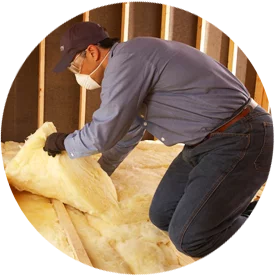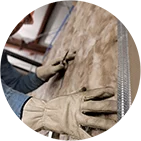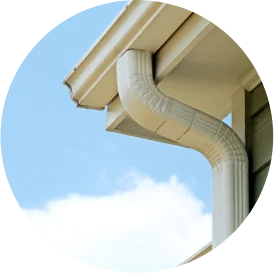Insulation FAQs
It’s best to learn about the benefits of insulation and the different types of insulation available before beginning your project. Below, we have compiled a list of answers to frequently asked insulation questions. If you don’t find what you’re looking for, contact us! We are happy to help.
Insulation
What is insulation and how does it work?
Insulation is a material that stops the transfer of heat and helps increase the energy efficiency of your home. In the summer, it stops warm air from leaking in, and during the winter, it helps heat stay in your home rather than escaping out. How insulation stops heat depends on the type / material.
What are the different types of insulation I can use?
There are many different types of insulation available:
- Fiberglass (loose-fill or blanket / batts and rolls)
- Spray foam
How much insulation do I need to install?
A few factors determine how much insulation you need to install, including:
- Where you live
- How old your home is
- Area(s) of your home you need to insulate
- And more
Where should I insulate my home?
It’s best to talk to a professional insulation contractor for your specific situation, but in general, your whole house should be insulated:
- Attic
- Basement
- Any crawl spaces in your home
- Interior and exterior walls
- And more
What is R-value?
If you’ve ever talked to an insulation contractor, you’ve undoubtedly heard the term “R-value.” Basically, the R-value of a certain type of insulation refers to how effective it is at stopping heat transfer! The R-value depends on the material, thickness, and density of the insulation, and of course, installation (improperly installed insulation is almost like having no insulation at all!).
How does insulation reduce noise?
Limiting the transmission of sound from one area to another requires a material that encloses the source of the noise, forming a barrier between the source and the adjacent area. This is what insulation does! Fiberglass is one of the best types of insulation for soundproofing purposes.
Where can I get insulation?
Insulation is available at home improvement and hardware stores, but we think you should contact a local insulation company! This helps ensure the insulation is installed correctly and safely and ultimately does what it is meant to do—help increase the energy efficiency and comfort of your home.
What is retrofit insulation?
Retrofit insulation refers to re-insulating an existing home. You can retrofit a home with any of the materials you would use in a new construction insulation project—fiberglass, spray foam.
What is blanket insulation?
Blanket insulation can be made up of rolls or batts, and it’s one of the most commonly used types of insulation. It is mainly installed in spaces that are relatively free from obstructions.
What is the best insulation for soundproofing?
Fiberglass is one of the best insulation materials for soundproofing.
Gutters
What are common gutter problems?
Talking to a professional insulation company is the best way to determine if you need gutter repair or replacement, but there are some things you can look out for on your own, including:
- Frequent clogs
- Mildew or rust buildup
- Flaking or peeling
- And more
Sectional gutters are pieced together in 10- to 20-foot sections with multiple seams—the gutter sections are joined together with connectors. Seamless gutters are continuous, meaning they only have joints at the corners and where the gutters meet downspouts—and are most often made from aluminum.
Why is there standing water in my gutters?
Standing water in your gutters is usually indicative of a leak (either in the gutters or a downspout), which can be caused by small sticks or twigs, tree branches, leaves, etc.









